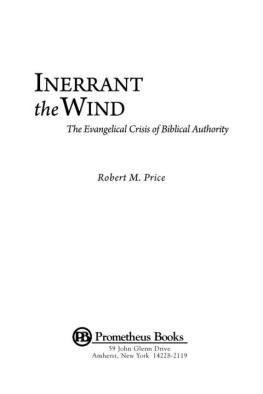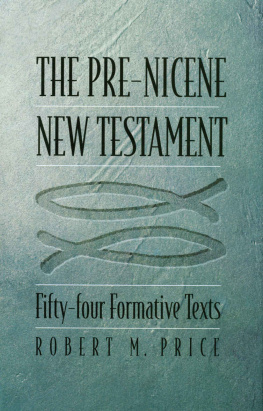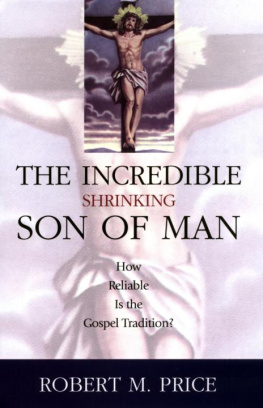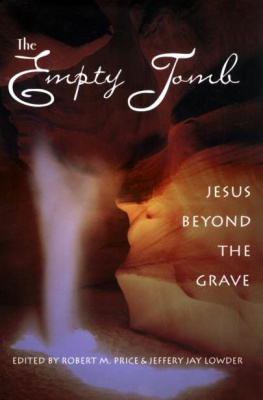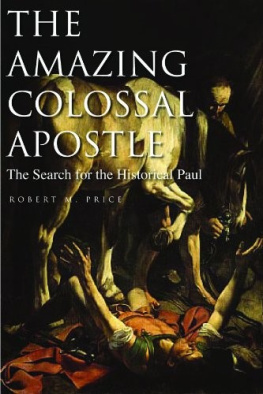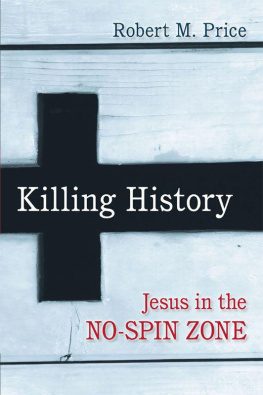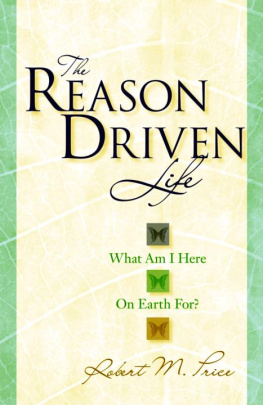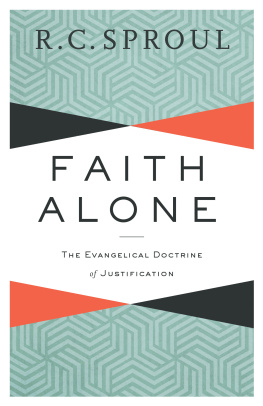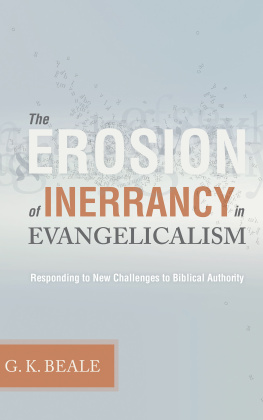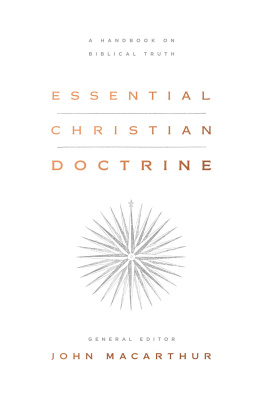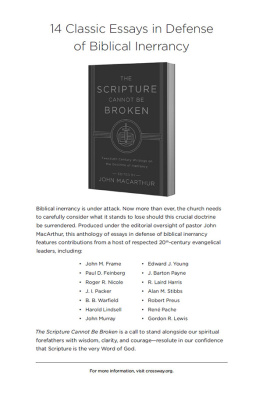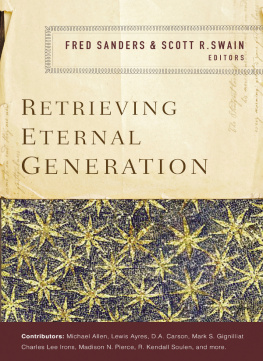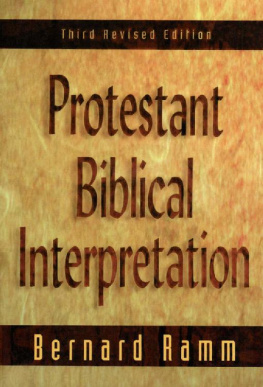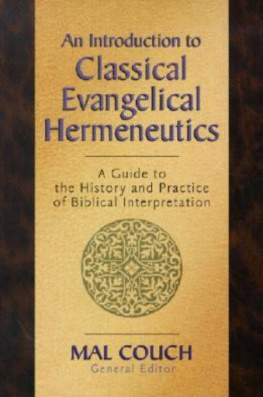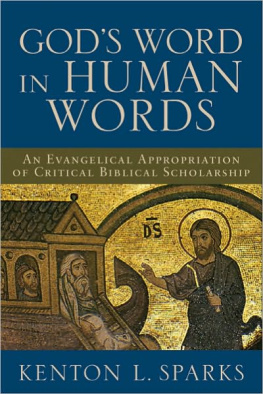Robert M. Price




CONTENTS
PREFACE
his book is dated. Except for slight modifications, it represents my 1981 doctoral dissertation (at Drew University), "The Crisis of Biblical Authority: The Setting and Range of the Current Evangelical Controversy." I have more than once looked it over to see what updating might be required. I was surprised to find that very little seemed to be in order. That is not because nothing new has happened since. Rather, it is because evangelical scholars who have not continued fighting the same old battles I describe here have moved on to other interesting questions (such as "Open Theism") or have launched out on the adventure of recreating evangelicalism on a whole new basis. More power to them. Dave Tomlinson's The Post-Evangelical (Triangle/S.P.C.K., 1995) and Gary Dorrien's The Remaking of Evangelical Theology (Westminster John Knox Press, 1998) are particularly interesting. But I have decided not to extend my analysis to include these developments, mainly because the book deals with a self-contained topic and period, a time of ferment and innovation that has led to some of these latter-day developments, some of which I predicted. But the book is not merely a period piece, because the books and thinkers I discussed still deserve and widely receive attention. People are still working their way through the same issues, and I hope this old book of mine may serve to aid them in their deliberations.
As I studied the work of the thinkers involved in the biblical authority debate, I discovered the obvious: many of them were equally engaged in adjacent discussions among evangelicals (old and new) on topics including the verifiability of supernatural involvement, not in ancient miracle stories, but in modern Christian conversions. Apologetics has similarly been inseparable from questions of inerrancy and infallibility: Should these beliefs be put on the shelf while arguing from the gospels as (merely) more or less reliable sources for the historical Jesus? Is it possible to argue sincerely in such a fashion while committed to belief in the inerrant accuracy of such texts on prior dogmatic grounds? And then why not focus on the evangelical scholar who has pursued all these questions the most rigorously and in unpredictable directions? I mean Clark H. Pinnock, who figures so largely in the inerrancy debate. He has much more to say, and I felt it would enrich my readers' grasp of the issues, as well as of the evangelical theological agenda, if I were to append three other studies I undertook during the same period I was putting together the main portion of the book. I hope the main work and the appendices will shed light on each other; I am pretty sure they will, no matter in which order one chances to read them! One final note: those who kindly supplied blurbs for this book did not know about the appendices. I do not think they would object to anything in them, but, for the record, I shouldn't give the impression that they meant to endorse the appendices, too.
Robert M. Price
January 23, 2007
INTRODUCTION
THE SURPRISING RANGE OF OPTIONS
Conservative Protestantism in America has always wrestled with doctrinal controversies over issues ranging from predestination to the mode of baptism, from charismatic gifts to biblical prophecy. But probably none has threatened the American evangelical movement as much as the recent "battle for the Bible" It began, to all intents and purposes, with the 1976 publication of Southern Baptist Harold Lindsell's gossipy The Battle for the Bible and continued for years in the systematic purge of moderate seminary professors and administrators in the Southern Baptist Convention. And though the controversy began in Southern Baptist circles and has perhaps achieved its most violent eruption there in recent years, the struggle over the Bible has affected evangelical Christians and institutions of every stripe.
At stake in the recent crisis of biblical authority is the very epistemology that formed the basis for all the previous evangelical debates: Can the Bible be held as authoritative in such a way that the citation of any text (in context) will settle a question? "For up to the present time any text from any part of the Bible was accepted as a proof-text for the establishment of Christian teaching, and a statement from the Bible was considered an end to the controversy."' Now some evangelicals have doubted (loudly and publicly) that biblical authority operates in precisely this way. This issue, besides being exceptionally thorny in a conceptual way, is perceived as particularly volatile since it raises the ghost of the "fundamentalist-modernist controversy" of an earlier generation. Those who believe in biblical inerrancy fear that the non inerrantists are, potentially or actually, following in the footsteps of the old modernists. Non-inerrantists repudiate this claim, yet they must take it seriously for fear that the evangelical movement at large will believe it. If they do, the non-inerrantists will find themselves alienated from the evangelical mainstream, or even forced out altogether.
The difference of opinion here is commonly represented as if one side believed in "inerrancy" and the other did not. The latter either, negatively, believed in "errancy" (as the inerrantists charge), or, positively, protested that "inerrancy" was simply an inappropriate category, or that it needed to be "nuanced" or "limited" But in fact there is much more diversity here than is usually recognized by either side in the debate. The main body of the present study will sort out the various noninerrantist approaches to biblical authority, inspiration, and hermeneutics. There are at least five distinct viewpoints, or at least distinct emphases, each of which, pursued consistently, would compel a different redefinition of biblical authority. In each case, there are surprising parallels to various mainstream Protestant or even Catholic views previously found to be unacceptable by evangelicals. The study will begin with chapter 1's discussion of the claims of Harold Lindsell, Francis A. Schaeffer, and other inerrantists, that a new fundamentalistmodernist controversy was on the horizon, if not already breaking. Contemporary developments on the evangelical scene will be reviewed in order to evaluate the inerrantists' claims. Do such developments parallel those of the original "controversy"? Chapter 2 offers a survey of doctrinal developments in the neo-evangelical period (late 1940s through 1960s), vis-a-vis biblical inspiration and inerrancy. This should help fill in the background for a consideration of the ongoing crisis. Chapter 3 commences a more detailed summary and analysis of the several non-inerrancy viewpoints. These will be shown to lead logically into one another. Chapter 3 deals with attempts to "limit inerrancy" only to certain kinds of matters, or only to "assertions," so as to allow for simple factual inaccuracies. Chapter 4 goes on to describe the "partial infallibility" position of those who recognize not only factual errors, but also theological contradictions in scripture. They respond by taking as normative a "central message," or lowest common denominator, in the Bible. Chapter 5 concerns those exegetes who find very little agreement among the biblical writers. They find any common denominator of biblical teaching to be so low, that they try to locate normativeness precisely in the main, pluriform, body of the text. Chapter 6 analyzes the position of those who apply the biblical text, in all its own variety, to a wide variety of cultures and worldviews today, an effort that comes to involve greater relativization of biblical thoughtmodels than has been traditional among evangelicals. Chapter 7 addresses itself to those evangelicals who fear the theological relativity and/or pluralism implied by the previous two approaches. To escape the effects of both criticism and hermeneutical pluralism, these evangelicals have sought asylum in ecclesiastical authority, rather than in cola Scriptura. The conclusion will present some suggestions as to the ultimate direction of noninerrantist thinking.

